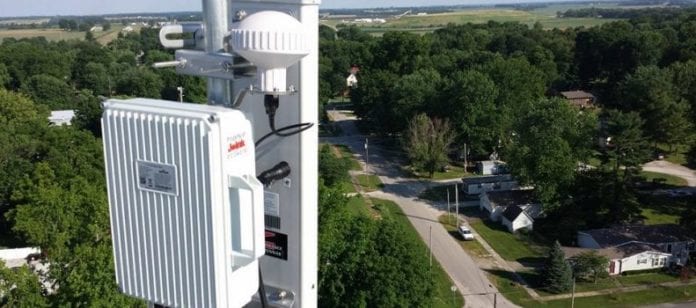Utah small cell bill comes ahead of Thursday FCC vote
Yesterday Utah Gov. Gary Herbert signed into law Senate Bill 189, the Small Wireless Facilities Deployment Act, which is designed to make it easier for operators to deploy small cell infrastructure. The bill accomplishes this by defining pole attach and right-of-way fee structures, and establishing a permitting process and timeline, among other measures.
In an interview with the Salt Lake City, Utah, Fox affiliate bill sponsor Sen. Curt Bramble said, “We don’t want cities to prohibit the deployment of these small cells. Right now we have big cell towers and there’s a lot of controversy around where a cell tower could be sited. These are much smaller antennas that are placed on existing infrastructure. It could be poles, it could be roofs, it could be signs, it could be whatever.”
Bramble hit on an important issue in his comment about cities potentially obstructing wireless deployments with local regulations. Right now the U.S. Federal Communications is prepping to vote March 22 on an order designed to create federal-level policy for how small cell deployments are handled as it relates to the National Historic Preservation Act and National Environmental Policy Act.
The mayors of San Jose, Austin and 34 other cities claim the FCC is more focused on “limiting local decision-making” than on removing barriers to broadband deployment. In a letter to the agency, the mayors said they are “calling for the support of the FCC as we seek to expedite the expansion of 5G infrastructure in our communities.” The municipalities have joined forces to form a group called Next Century Cities. Along with its letter to the FCC, Next Century Cities has released research that it funded that found most cities have either made provisions for small cells or plan to do so, but the overwhelming majority are worried about state laws that could pre-empt local authority.
There are bills similar to the Utah legislation that have been adopted in Florida, Colorado, Arizona, Kansas, Virgina, Minnesota and Indiana.
Steven K. Berry, president and CEO of the Competitive Carrier Association, an organization of small and rural carriers that advocate for policy as a block, said he’s hoping the FCC will offer some relief with its upcoming vote and “provide expedited rule-making for siting and infrastructure deployment.” He told RCR Wireless News that changes that remove long permitting and related processes make it so carriers “can start deploying small cells and advance wireless telecommunications, including fixed wireless, ASAP. That’s the hope.”

